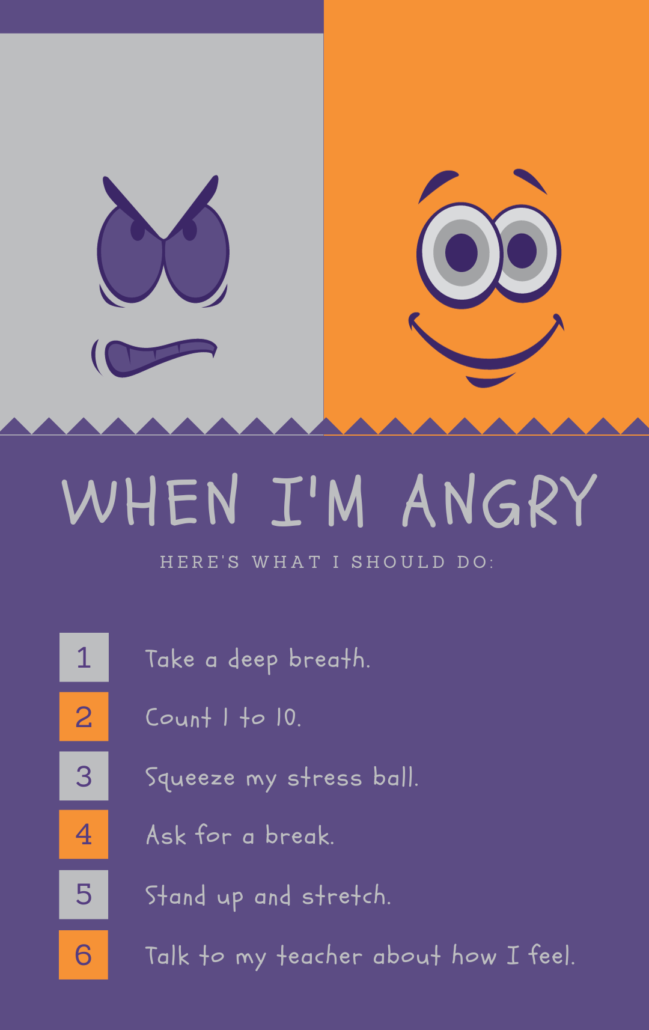When I Am Angry – Strategies for Helping Kids Manage Anger
Helping kids manage anger is an essential aspect of their emotional development. Here are 10 strategies to assist them in handling their anger more effectively:
Teach Emotional Awareness: Encourage children to recognize and label their emotions. Help them understand that anger is a natural emotion, but it’s important to express it appropriately.
Model Healthy Expression: Children often learn by example. Demonstrate how to express anger in a calm and constructive way. Use “I” statements to express your feelings and avoid blaming others.
Provide a Safe Space: Create a safe environment where kids feel comfortable expressing their emotions. Let them know it’s okay to feel angry, but there are appropriate ways to deal with it.
Teach Relaxation Techniques: Introduce simple relaxation methods such as deep breathing, counting to ten, or visualization. These techniques can help children calm down when they feel overwhelmed by anger.
Encourage Physical Activity: Physical activity can be a great outlet for pent-up energy and frustration. Encourage sports, exercise, or even a simple walk to help release excess energy and reduce anger.
Develop Problem-Solving Skills: Teach children how to identify the root cause of their anger and find constructive solutions. Encourage them to think about alternatives and choose the best course of action.
Establish Consistent Consequences: Set clear and consistent consequences for inappropriate expressions of anger. Make sure these consequences are fair and related to the behavior, helping children understand the impact of their actions.
Create a Calm-Down Corner: Designate a specific space where children can go to calm down when they’re feeling angry or overwhelmed. Fill it with calming activities or items, such as books, puzzles, or soft toys.
Promote Open Communication: Encourage open and honest communication. Allow children to express their feelings and concerns without fear of judgment. Listen actively and validate their emotions.
Teach Time-Out as a Positive Strategy: Time-out can be an effective way for children to take a break and regain control of their emotions. Position it as a positive strategy for self-regulation rather than a punishment.
Remember that each child is unique, and it may take time to discover which strategies work best for them. Be patient, consistent, and supportive in helping them develop healthy anger management skills.
Crisis Suicide Helpline:






